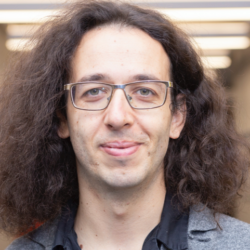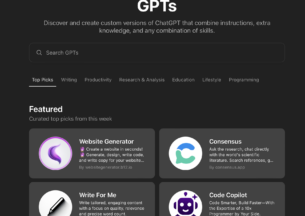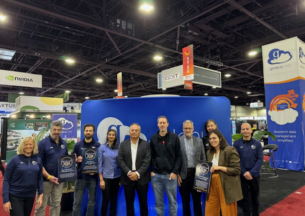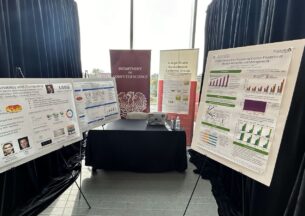How to Thrive in HCI Academia (Without Losing Your Mind)
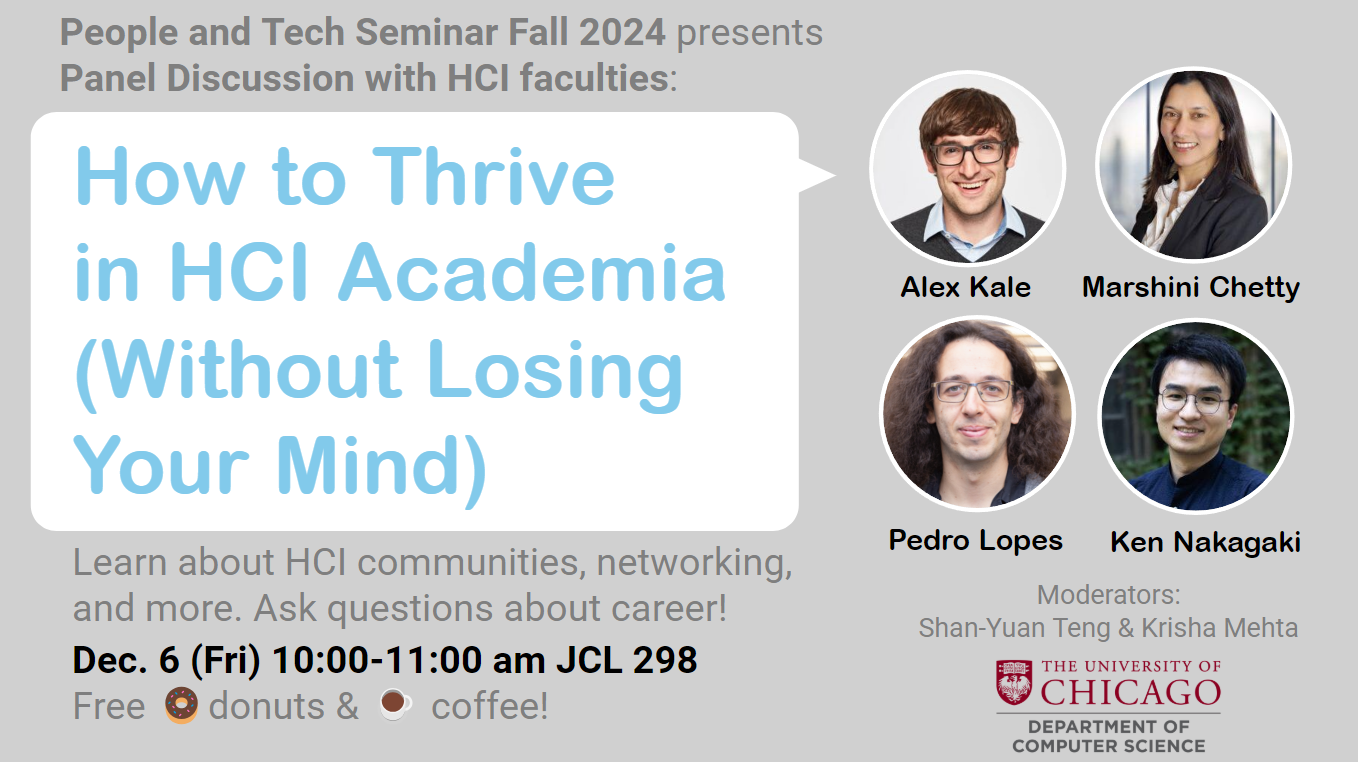
The People and Technology (PAT) seminar is excited to announce a panel discussion with our HCI faculties. We will discuss how, as a PhD student, can get involved in HCI (Human-Computer Interaction) communities (e.g., ACM CHI), organize workshops, join the doctoral consortium, etc. Learn about many opportunities in academia, professional networking, and more. More importantly, it is a great opportunity to ask our faculties questions about HCI careers!
People and Technology (PAT) is a student-run seminar with social events at Computer Science for students who work on the intersection of people and technology, e.g., Human-Computer Interaction, Human-AI Interaction, Privacy, Education, Visualization. Follow updates on CS Slack channel #people_and_tech, and subscribe to PAT mailinglist for future events.
Speakers
Alex Kale
Alex Kale is an Assistant Professor in Computer Science and the Data Science Institute at the University of Chicago. Previously, he earned his PhD at the University of Washington where he worked with Jessica Hullman. Alex leads the Data Cognition Lab (website to come), focused on creating data visualization and analysis software that explicitly represents the user’s cognitive processes.
Ken Nakagaki
Ken Nakagaki is an interaction designer and HCI (Human-Computer Interaction) researcher from Japan. He joined the University of Chicago’s Computer Science Department as an Assistant Professor and founded the Actuated Experience Lab, or AxLab, in 2022.
His research has focused on inventing and designing novel user interface technologies that seamlessly combine dynamic digital information or computational aids into daily physical tools and materials. He is passionate about creating novel physical embodied experiences via these interfaces through curiosity-driven tangible prototyping processes. At AxLab, he pursues research in actuated and shape-changing user interface technologies to design the future of user experiences.
Before joining UChicago, he received his Ph.D. from the MIT Media Lab, where Prof. Hiroshi Ishii was his advisor. There he focused his research on Actuated Tangible User Interfaces. Ken has presented at top HCI conferences (ACM CHI, UIST, TEI) and led demonstrations of his work at international exhibitions and museums, including the Ars Electronica Festival and Laval Virtual. He has received numerous awards, including the MIT Technology Review’s Innovators Under 35 Japan & Asia Pacific, the Japan Media Arts Festival, and the James Dyson Award.
Marshini Chetty
Marshini Chetty is an associate professor in the Department of Computer Science at the University of Chicago where she directs the Amyoli Internet Research Laboratory (AIR lab). She specializes in human-computer interaction, usable privacy and security, and ubiquitous computing. Her work has won best paper and honorable mention awards at SOUPS, CHI, and CSCW, and she was a co-recipient of the Annual Privacy Papers for Policymakers award. Her research has been featured in the NYTimes, CNN, Washington Journal, BBC, Chicago Tribune, The Guardian, WIRED, and Slashdot. She has received generous funding from the National Science Foundation, through grants and an NSF CAREER award, as well as the National Security Agency, Facebook, and multiple Google Faculty Research Awards.
Pedro Lopes
Pedro Lopes is an Assistant Professor at the University of Chicago. Previously, Pedro was a PhD student with Prof. Baudisch at the Hasso Plattner Institute, Germany. Pedro leads the Human Computer Integration Lab, a research group focused on integrating computer interfaces with the human body.
Pedro’s work is published at top-tier conferences (ACM CHI & UIST) and demonstrated at venues such as SIGGRAPH and IEEE Haptics. Pedro has received the CHI Best Paper award for his work on Affordance++, Best Talk Awards and a Best Paper nomination. As part of his research, Pedro has exhibited at Ars Electronica 2017, Science Gallery Dublin and World Economic Forum in San Francisco. His work also captured the interest of media, such as MIT Technology Review, NBC, Discovery Channel, NewScientist or Wired.





